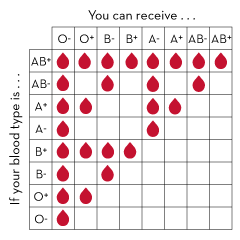
The typical American diet is a deadly one, consisting primarily of toxic and acid-forming foods like processed sugars,
artificial sweeteners, refined grains, conventionally produced meats and dairy, and hidden genetically modified organisms.
All this, combined with a plethora of other challenging environmental factors (such as lack of rest, psychological stress,
and pharmaceutical drugs), mean it’s no wonder that more and more people are being diagnosed with chronic, degenerative
illnesses or otherwise deadly conditions for which modern conventional medicine claims to have no known cure.
One of the basic underlying problems with this unsustainable lifestyle – and there are many – is the average consumer’s
lack of understanding that the body must balance the blood’s pH levels at a slightly alkaline level of 7.365 in order to survive.
When a person ingests food to “burn” for fuel, the digestive and metabolic process transforms it into a kind of ash which is
either acidic or alkaline. The laws of modern biochemistry further explain that it is not the organic matter of foods (whether
the food itself is acidic or alkaline), but their inorganic matter (such as calcium, magnesium, potassium, sodium, sulfur,
phosphorous; that is, how they break down in our bodies), that determines either the acidity or alkalinity of this ashy residue.
For this reason, and because all foods in nature contain both acid and alkaline-forming elements according to the
Conscious Living Center, balance is either achieved or thwarted as a direct result of the foods we choose to eat. Too many
acid-forming foods can have dire consequences for our health, with “acidosis” being a common diagnosis in diabetics,
for example. This is because when the nutrients required to maintain this slightly alkaline state cannot be obtained
from food, the body will instead draw from its own stores, like the bones or other vital tissues – damaging its ability to repair
itself and detoxify heavy metals, thereby making a person more vulnerable to fatigue and illness. And the margin for error
is small. Even an only slightly acidic pH of 6.9 can actually lead to coma and death.
Of course, the ultimate goal is balance. Eating too many alkalizing foods can lead to its own fair share of complications
over time, but the risk of this is seemingly less likely, given the current sorry state of today’s highly addictive consumerist
diet. To combat the effects of such a diet, here are six of the most alkaline-forming foods to work into your everyday meals:
1. Root vegetables
Due to the healing “yang” nature of these foods in traditional Chinese medicine, and their tendency to be more rich in
minerals than many other vegetables, it may be safe to say that you can’t get enough of them. Look for radishes especially
(black, red or white), as well as beets, carrots, turnips, horseradish and rutabaga. Ready to eat after steaming for just
15-20 minutes, root vegetables will help you feel both satiated and better grounded.
2. Cruciferous vegetables
These are the veggies we all know and love, made even more delicious with just a small amount of healthy, homemade
sauce like pesto. Choose from broccoli, cabbage, cauliflower, Brussels sprouts and the like.
3. Leafy greens
These include kale, Swiss chard, turnip greens and spinach – of which spinach may in fact be the best pick. Known especially
for its rich vitamin K and folate content, spinach is also packed with vitamins, minerals, phytochemicals, antioxidants and fiber,
helping to improve digestion and even vision.
4. Garlic
A true miracle food, garlic appears at the top of innumerable lists of foods that encourage overall health, and alkaline-forming
food is no exception. Among its other benefits are its ability to promote cardiovascular and immune health by lowering blood
pressure, cleansing the liver and fighting off disease.
5. Cayenne peppers (capsicum)
As part of a family of potent, tropical peppers which contain enzymes essential to endocrine function, cayenne is among the
most alkalizing foods. It is known for its antibacterial properties and is a rich supply of vitamin A, making it a helpful agent in
fighting off the harmful free radicals that lead to stress and illness.
6. Lemons
Lemons may be the most alkalizing food of all. As a natural disinfectant, it can heal wounds while also providing potent and
immediate relief for hyperacidity and virus-related conditions, as well as coughs, colds, flu and heartburn. Lemon also works
to energize the liver and promote detoxification.
So it can’t hurt to think twice about what’s on your plate at your next meal, but not doing so might. Just applying that age-old
motherly advice to “eat your vegetables” can be a solid first step in achieving better health.


Sources for this article include:
http://www.naturalnews.com
http://www.onegreenplanet.org
http://livingthepresence.org/pdf/acid_alkaline_fds.pdf
http://www.naturalnews.com
http://vividlife.me
http://www.balance-ph-diet.com/acid_alkaline_food_chart.html







